The Allahabad high court on Thursday reserved till August 3 its verdict on a plea against a Varanasi district court order directing the Archaeological Survey of India to conduct a survey to determine if the Gyanvapi mosque was built upon a temple.

The court of Chief Justice Pritinker Diwaker also ordered that the stay on the ASI survey will continue till August 3.
The high court was hearing the plea filed by Anjuman Intezamia Masjid, which manages the mosque.
Appearing for the state of Uttar Pradesh, Advocate General Ajai Mishra said the state government is there to maintain law and order and that it has no concern with the survey.
The counsel for the Hindu side, Vishnu Shankar Jain, submitted that the district court had ordered for the ASI survey to come to a 'logical conclusion regarding existence of deities and nature and age of the structure'.
He also presented in the court some photographs of the western side of the mosque showing the existence of Hindu idols.
During the hearing, SFA Naqvi, who represented the mosque committee, submitted that the matter regarding maintainability of a suit is pending before the Supreme Court and if the apex court later rules that the suit is not maintainable, then the entire exercise will be futile.
Thus, a survey should be done after the top court's decision on maintainability of the suit, Naqvi argued.
When the hearing started in the case, ASI Additional Director Alok Tripathi assured the court that the ASI is not going to do any digging at the structure.
The high court on Wednesday said that it would take up the matter at 3.30 pm on Thursday, but Chief Justice Diwaker started hearing the case 15 minutes in advance and reserved its order after hearing the arguments.
Earlier, Naqvi said, "Court cannot be used to collect evidence by sending a commission, when the plaintiff had no evidence in support of his case."
Replying to this, Hindu side's lawyer Jain said, "Existence and non-existence of deities is a matter of evidence. To secure evidence, which is there and parties are not in position to produce themselves, the court can issue a commission to collect such evidence."
Naqvi told the court that the mosque committee has attached photographs of various digging equipment which the ASI team was carrying when it reached the mosque premises.
"It shows that they had intentions of digging the spot," he argued.
On this, Chief Justice Diwaker said that though they were carrying equipment, it doesn't show they had intentions to dig.
Later, Tripathi, the ASI official, clarified that as the ASI team visited the mosque site for the first time, it carried some equipment to remove debris.
Jain also showed photographs of western wall of the structure and said that there are various signs of Hindu religion, including 'Swastik', engraved on the wall.
"There are a number of Hindu artifacts on the wall and inside the mosque. It can be proved by expert opinion which can be given by ASI. Aurangzeb while demolishing the temple raised a superstructure on the remains of the old temple and it will be determined by the ASI survey," Jain said.
Citing various court orders, Jain said that a survey/commission can be ordered at any stage of the trial and commission can be issued to collect evidence.
Advocate Punit Gupta appearing for UP Sunni Waqf Board argued that the application for ASI survey was premature as even in the Ram Janmabhoomi case an order for ASI survey was passed after recording oral evidence of the parties concerned.
But, in the present case the oral evidence is not recorded yet, he said.
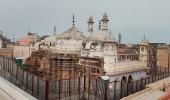
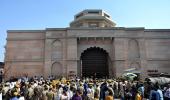
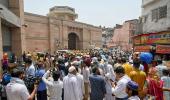

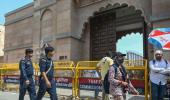



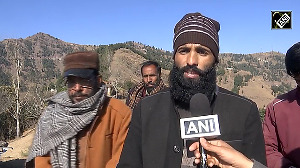


 © 2025
© 2025